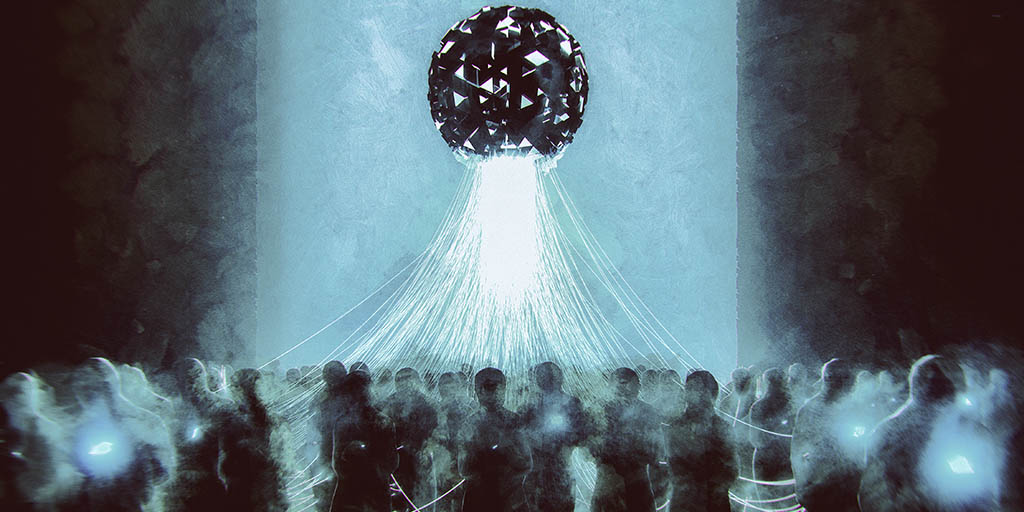Addiction: The good, the bad, and how to tell the difference
 CREDIT: ISTOCK (GREMLIN)
CREDIT: ISTOCK (GREMLIN)Opinion: It's important to recognize when our addictions keep us from living our best lives.
We all have one. Whatever form it takes, we all have something in our lives that we turn to automatically, compulsively, or as a means of stress relief. Some of the forms it comes in are acceptable, responsible, non-threatening activities that are perceived as hobbies.
I am fortunate to have experienced the spectrum of both the perceivably good and bad. And while there are incredible differences between the two, there are also many similarities that I hope to illustrate further.
Attainment of goals
Whether a pianist, an aspiring professional athlete, a scholar pursuing educational prowess or a dancer with aspirations to tour the world professionally, the work necessary to bring you closer to your goals requires work, and a lot of it. The hours, commitment, and sacrifices that are made to achieve aspirational success can mimic some of the head shaking traits that are often attached to drug addicts.
For example, social isolation is an experience that both the positive and negative addict can experience. On one hand, you can commit to the regimen needed to become the person you’re working to become. Your social circle may not be wide as free time isn’t something you know too well. Your version of free time is actual time you’ve dedicated to your craft.
On the other hand, a person addicted to narcotics can also experience the social circle shrinkage. In their experience, they may participate in their activity of choice with like-minded individuals, if recreational use is their intention, or, oftentimes they’ll engage on their own, as awareness of what they are doing would not be readily accepted by their loved ones.
Overuse of crutches without broken legs
Sometimes we surprise ourselves with how strong and resilient we are in the face of crises, trauma, or uncomfortable situations. Other times we may exhaust ourselves in pursuit of avoiding anything that takes the wind out of our sails. Some turn to food, some to tobacco or alcohol, all with the same subtle, quiet intention of quieting that which makes us feel something we’d wish not to feel.
While the aforementioned are relatively accepted means of therapy, an overindulgence in any can generate a similar effect to that of the narcotics abuser, who began indulging in their therapy of choice, when they first began using. Having feelings of guilt, unwanted physical responses to overdoing it, and a general shift in comfort the day after, are all typical responses felt by both the positive and negative addict. The hangover, in its many variations and intensities, is not exclusive to one path.
Escapism
We all search for entertainment; a need to escape the hectic work week, school pressures and general life stresses and responsibilities. It is a necessity of life. Some people turn to socializing with friends, family, physical activity, artistic expression and many other hobby like activities.
Some of the most popular forms of escapism though are enjoyed watching television and screen time on mobile devices. People can get lost in these things for hours at a time, surprised at how much time has passed once the remote or device is placed down for a moment’s rest. It’s as if the world sped up during your submergence into your virtual world.
That time that is lost is time that could be spent living, and by that what is meant is, in the throes of the community doing something, anything. Have you ever said to yourself that there isn’t enough time in a day or week to do something that you really want to begin or start up again? That lost time will not return, once it is gone it is gone.
An addict of hard narcotics experiences this on a hyper level, losing that time living life when they are under the influence for hours at a time, akin to the mobile user whose eyes constrict and dilate at the images their gaze is focused on. Escapism is encouraged, recommended, but keep in mind that not all forms of escape – and addiction – will enhance your quality of life.
Editorial opinions or comments expressed in this online edition of Interrobang newspaper reflect the views of the writer and are not those of the Interrobang or the Fanshawe Student Union. The Interrobang is published weekly by the Fanshawe Student Union at 1001 Fanshawe College Blvd., P.O. Box 7005, London, Ontario, N5Y 5R6 and distributed through the Fanshawe College community. Letters to the editor are welcome. All letters are subject to editing and should be emailed. All letters must be accompanied by contact information. Letters can also be submitted online by clicking here.














